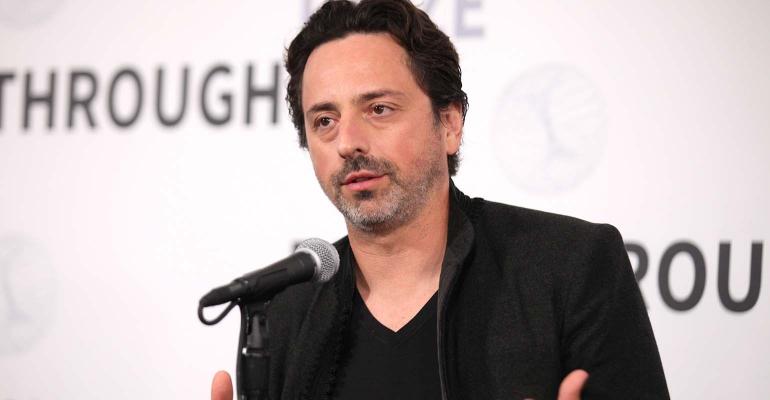(Bloomberg) -- Bayshore Global, the family office for Google co-founder Sergey Brin, made Marie Young chief investment officer, elevating the former Goldman Sachs Group Inc. analyst to a position helping oversee the fortune of one of the world’s most influential billionaires.
Young, 35, joined the Silicon Valley firm about a decade ago from Goldman Sachs and served as deputy CIO for the prior two years, according to her LinkedIn profile. Young and a Bayshore representative didn’t respond to requests for comment.
Brin, 48, has a net worth of $111.1 billion, according to the Bloomberg Billionaires Index, primarily thanks to his 6% stake in Alphabet Inc. worth about $97 billion. For years, he held onto the stock, but sold more than $500 million last year, the most since 2016.
Bayshore helps manage the fortune of the world’s seventh richest person from Los Altos, California. It doesn’t have a website and few details have emerged about its investments.
Read more: How New Wealth, Few Rules Fuel Family Office Boom: QuickTake
Started in 2005, the office is named after a section of Mountain View, California, where Google is headquartered.
Over the years, it has employed a Navy Seal for security, a yacht captain, an archivist and an estate manager. Alongside looking after the lifestyle of Brin and his family, Bayshore also invests in equities, commercial real estate and private equity, according to LinkedIn profiles of employees, who often say they work for an unnamed private family office.
Read more: Inside a Billionaire’s Family Office: Navy Seals, Yacht Captains
One of its early hires was Rob Fetherstonhaugh, a long-time adviser to wealthy families who oversaw investments and helped set up the Brin Wojcicki Foundation. Brin and Anne Wojcicki divorced in 2015, and he’s since married Nicole Shanahan. Fetherstonhaugh has moved on to help run Belvoir Investments Corp. for Canada’s Desmarais family.
Bayshore opened an outpost in Singapore in late 2020, with Young listed as the director. In December, it added Hemant Mandal to make climate-change investments such as renewables and transition technologies, his LinkedIn profile shows. Mandal, who previously worked for the International Finance Corp., didn’t return messages for comment.
George Pavlov, a former venture capital executive, is the current chief executive officer overseeing Bayshore, including its philanthropy. At the 2019 Milken Institute Global Conference, he indicated some of its priorities, such as neurodegenerative diseases and criminal justice reform.
Part of our role is to “take more risk than government is willing to take and invest in things earlier than most people would be, knowing that there’s a strong probability you’re going to lose your money,” he said during a panel discussion.
The Sergey Brin Family Foundation had more than $2.5 billion in assets at the end of 2019, with a big portion of that Alphabet stock, according to filings. It also invested in hedge funds and private equity.
While family offices have long been used by dynastic clans in Europe and North America, Bayshore took shape as a wave of vast new fortunes sprung up from Silicon Valley, Wall Street and China.
There are now thousands in operation, ranging from those employing just a handful of people to highly sophisticated operations.
Mousse Partners, which oversees the fortune behind Chanel, has invested in venture funds and private equity. Blue Pool Capital, oversees money for the Alibaba Group Holding Ltd.’s founders and recently paid $188 million for a New York penthouse, while Soros Fund Management oversees $28 billion in net assets.
“Family offices have surged in number over the past two decades alongside the rise in ultra-high net worth individuals,” said Rebecca Gooch, senior director of research at Campden Wealth in London. “As the wealth management vehicle of choice for the affluent, family offices have rose to prominence due to their proven ability to preserve and grow wealth for current and future generations.”





